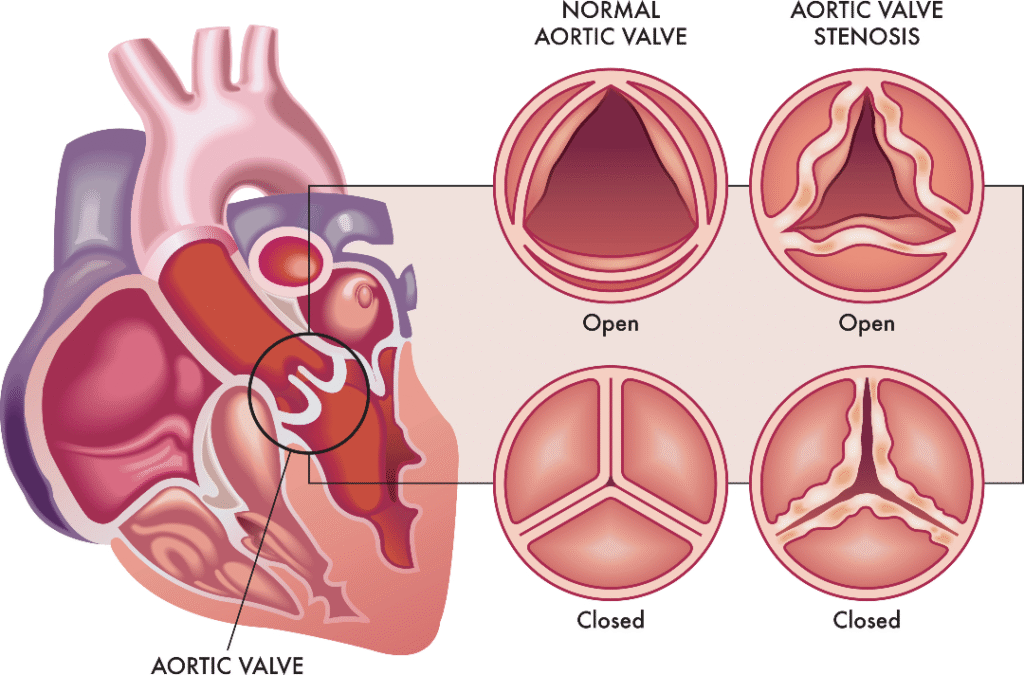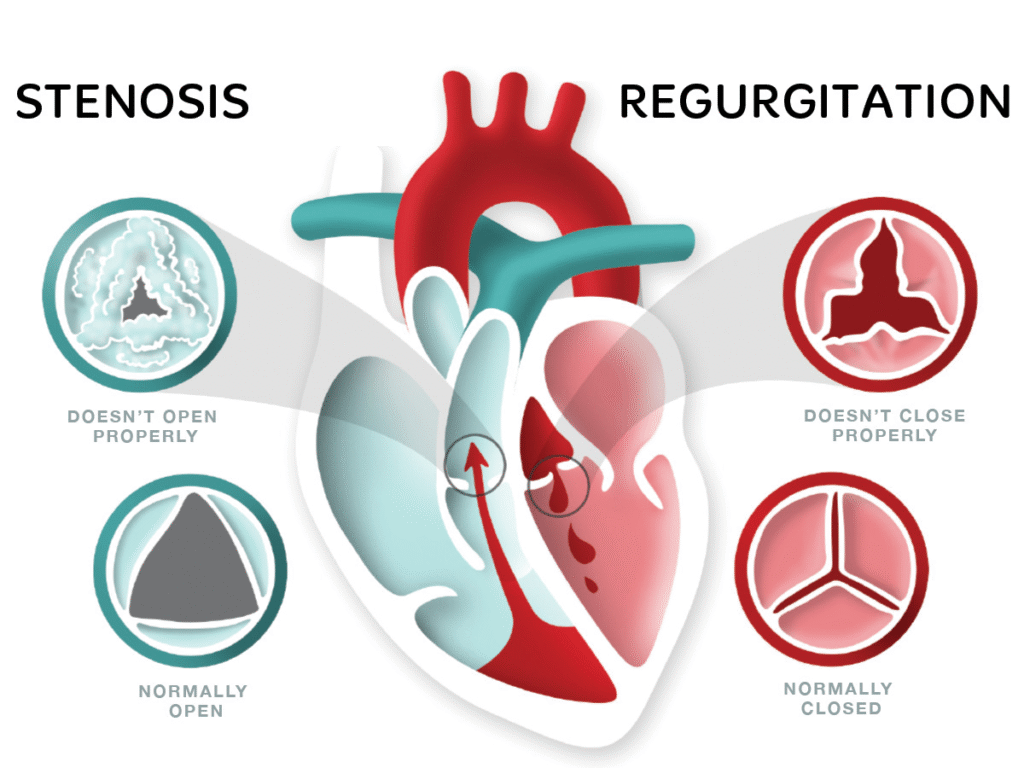Signs of a Failing Heart Valve and What to Do

Your heart works non-stop, pumping blood through a system of valves that open and close with every beat. But what happens when one of these valves starts to falter? Imagine a door that won’t close properly blood starts leaking backward or gets blocked, forcing the heart to work harder. Over time, this can be life-threatening.
If you’re wondering what the signs of heart valve failure are and what you should do next this guide will give you everything you need to know. Early detection could save your life.
What Are Heart Valves and Why Are They Important?

The human heart has four valves:
- Aortic
- Mitral
- Tricuspid
- Pulmonary
Each act like a one-way gate, ensuring blood flows in the correct direction through the heart and into the body. A malfunction in any of these valves disrupts the heart’s rhythm and efficiency. It is like a leaky faucet constant dripping eventually causes damage to your plumbing system.
Common Reasons Heart Valves Fail
Heart valve problems do not appear overnight. They usually result from years of wear and tear, infections, or underlying conditions.
Here are the main causes:
- Age-related degeneration: Valves may stiffen or thicken with age.
- Rheumatic fever: Often due to untreated strep infections in childhood.
- Congenital defects: You could be born with faulty valves.
- Infections like endocarditis: Damage valves from within.
- Heart attacks: Can disrupt blood supply to valve tissue.
- Radiation therapy or chemotherapy: Rarely, these can scar valves.
Understanding the cause helps doctors tailor the treatment for long-term success.
Early Warning Signs You Should Never Ignore
Symptoms of heart valve disease often sneak in subtly. But they escalate if left untreated.
Shortness of Breath (Especially When Lying Flat)
If climbing stairs or lying down makes you breathless, it may be due to fluid buildup in your lungs from poor valve function.
Unusual Tiredness and Exercise Intolerance
Feeling unusually tired during basic activities? Your heart might be under stress, struggling to pump enough oxygenated blood to your body.
Chest Discomfort or Tightness
This isn’t just about pain it can feel like pressure, squeezing, or heaviness. Don’t chalk it up to stress or indigestion. Get it checked.
Advanced Symptoms That Indicate Worsening Valve Failure
As valve disease progresses, the body sends louder distress signals.
Swelling in Legs, Feet, or Abdomen (Edema)
Poor circulation causes fluid retention. If your socks leave deep marks or your belly feels bloated, that’s a red flag.
Irregular or Rapid Heartbeats
You may feel fluttering, pounding, or skipping beats. Known as arrhythmias, they’re often tied to valve dysfunction.
Dizziness, Lightheadedness, or Fainting
Your brain may not be getting enough oxygen-rich blood. This is particularly common in aortic valve stenosis.
Risk Factors That Increase Vulnerability
Not everyone is equally at risk. You are more likely to develop valve issues if you:
- Are over 60
- Had rheumatic fever or heart infections
- Have high blood pressure or high cholesterol
- Were born with valve defects
- Smoke or lead a sedentary lifestyle
Regular cardiac screening at Northern Heart Hospital is key if you fall into any of these categories.
Types of Valve Malfunctions: Stenosis vs Regurgitation

There are two primary ways valves fail:
- Stenosis: The valve narrows and restricts blood flow.
- Regurgitation: The valve leaks and allows blood to flow backward.
Both reduce efficiency and increase the workload on your heart, eventually leading to complications like heart failure.
Valves Most Commonly Affected
While all four valves can malfunction, the aortic and mitral valves are the usual suspects. Aortic stenosis, in particular, is common among older adults and can be fatal if untreated.
Diagnostic Tests: How Doctors Identify Valve Disease
To confirm a diagnosis, your cardiologist may recommend:
- Echocardiogram (ultrasound of the heart)
- Electrocardiogram (ECG)
- Chest X-rays
- Cardiac MRI and Cardiac CT
- Cardiac Catheterisation (if more invasive detail is needed)
All of these are available at Northern Heart Hospital’s Diagnostic Centre.
What to Do if You Suspect Valve Problems
The moment you notice consistent symptoms, do not delay. Schedule a consultation with a heart specialist immediately. Keeping a journal of your symptoms including when they occur and what triggers them can help your doctor understand your condition better.
Treatment Approaches: Tailored to Each Case
Depending on severity and valve involved, treatment may include:
- Medications: Diuretics, beta blockers, ACE inhibitors
- Valve repair: Best when possible, preserving natural tissue
- Valve replacement: Mechanical or bioprosthetic options
- Transcatheter Heart Valve Intervention (TAVI, MitraClip etc)
At Northern Heart Hospital, cardiologists offer personalized plans based on cutting-edge research and your unique needs.
Life After Valve Surgery or Repair
Recovery can be smooth, especially with structured cardiac rehabilitation. You will need:
- Follow-up appointments
- Lifestyle adjustments (diet, exercise, no smoking)
- Possibly lifelong medication, especially with mechanical valves
Why Early Detection and Specialist Care Matter
Time is heart muscle. The earlier a failing valve is detected, the more options you have. Don’t let manageable symptoms escalate into emergencies. Listen to your body and let the specialists listen to your heart.
Northern Heart Hospital: Your Partner in Heart Valve Care
At Northern Heart Hospital, we are now having a heart valve clinic. Patients receive top-tier cardiac care from expert cardiologists and cardiothoracic surgeons. With world-class diagnostic equipment, state of the art treatment options, and patient-centered aftercare, it is your go-to center for comprehensive heart valve treatment.
Final Thoughts
A failing heart valve is not something to take lightly. Whether the signs are subtle or severe, early action is key to a healthier, longer life. Don’t let confusion or fear stop you your heart’s health deserves your full attention.
For consultation or second opinion, visit nhearthospital.com today and put your heart in expert hands.
FAQs
Q1: Can heart valve problems be treated without surgery?
Yes, mild cases may be managed with medication and monitoring, but advanced conditions usually require intervention (surgical on transcatheter intervention).
Q2: How do I know if my symptoms are from valve disease or something else?
Only diagnostic tests can confirm. If you experience breathlessness, fatigue, or palpitations, consult a cardiologist.
Q3: What is the recovery time after valve replacement?
Recovery ranges from a few weeks to several months depending on your health, type of surgery, and lifestyle.
Q4: Can a replaced valve last forever?
Mechanical valves can last decades but require blood thinners. Bioprosthetic valves typically last 10–20 years.
Q5: What should I avoid if I have valve problems?
Avoid smoking, heavy lifting, and skipping medications. Also, always consult your doctor before any dental or surgical procedure.
